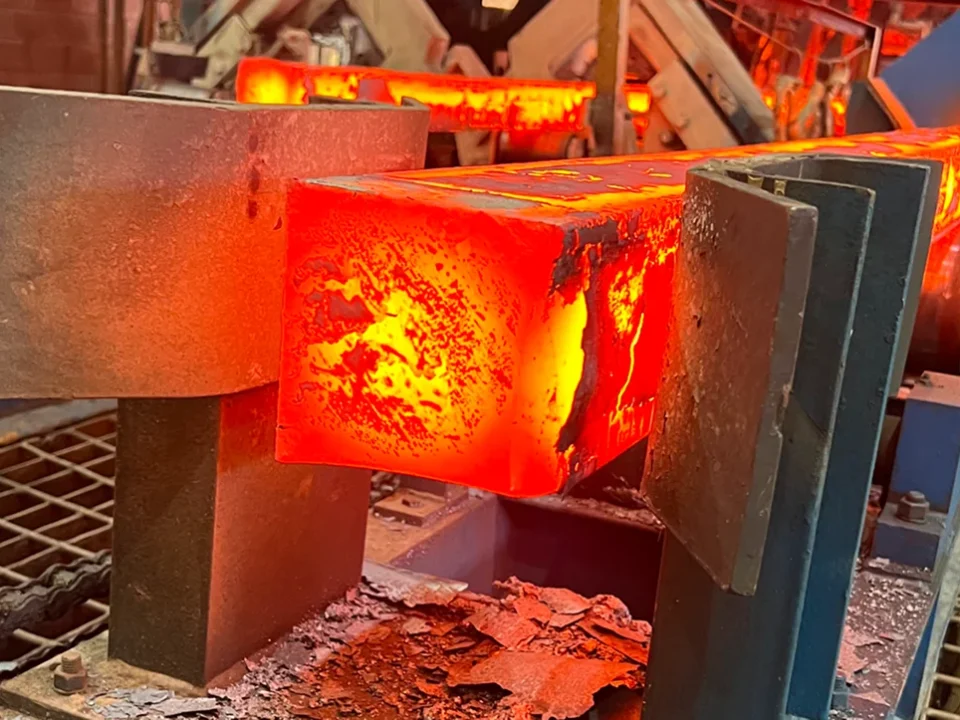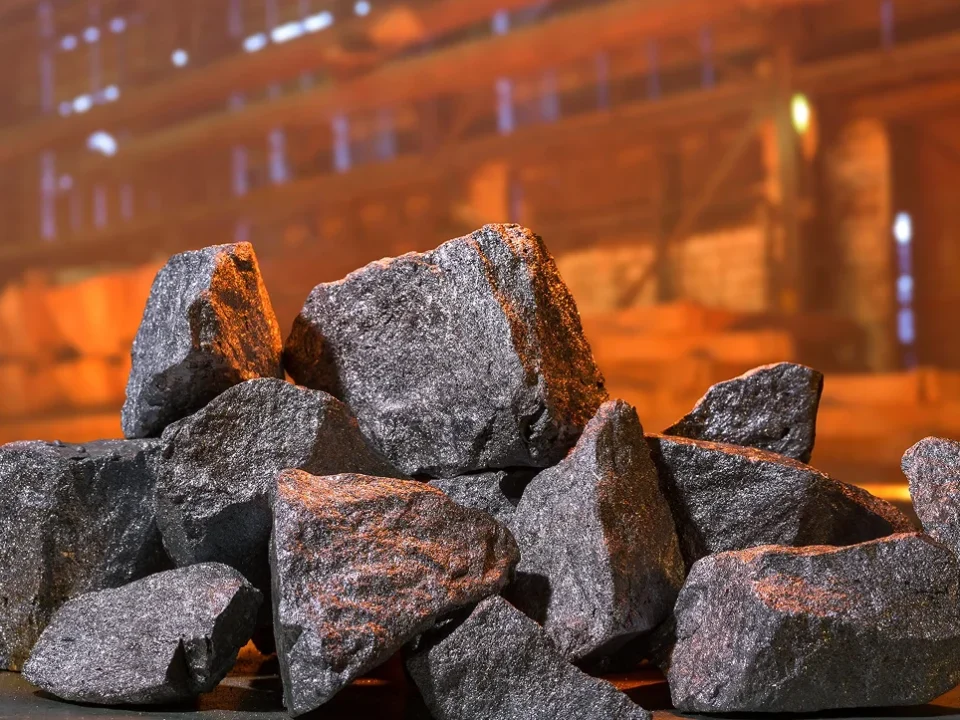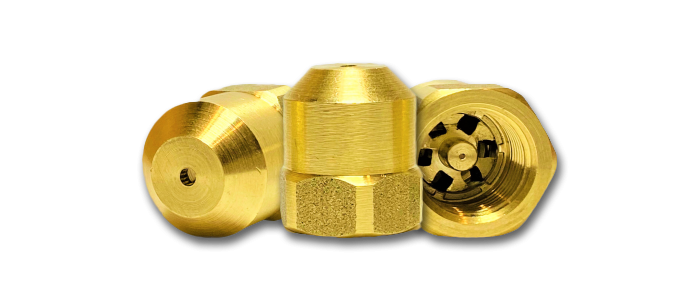
Which Spray Nozzle is best for Steel making?
Tuesday, August 22, 2023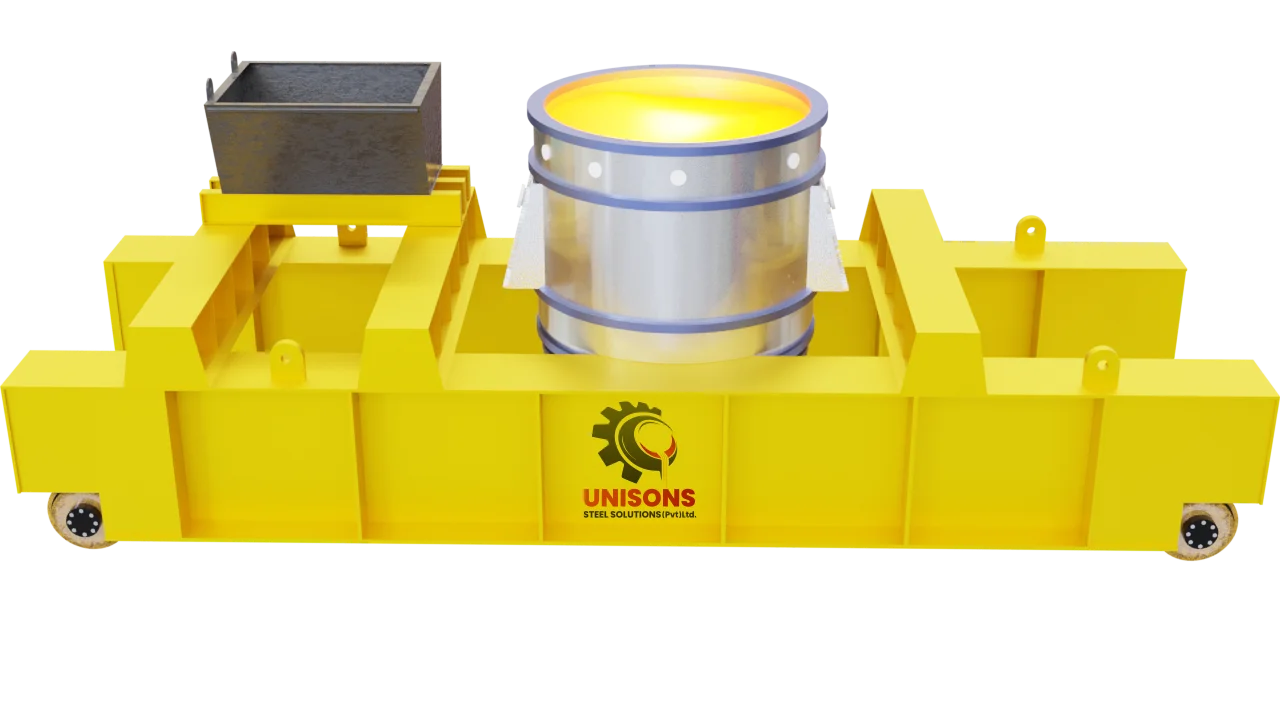
Ladle Transfer Car in Steel Manufacturing
Saturday, September 16, 2023What is Casting Powder?
Casting powder, also known as Mould Flux or Mould Flux Powder is an essential part of the Continuous Casting process. It is primarily used to ease the passage of Steel through the mould body by lubrication and to create a thermal barrier between the Steel Shell and the mould.
It is a necessary addition in the casting process to improve stability and ensure smooth operation by improving performance and reducing surface defects.
Functions of Casting Powder
Being a critical part of the Continuous Casting process, Casting Powders have a few key functions that are vital for stable and smooth casting of Steel.
- To protect the meniscus of Steel from oxidation.
- To lubricate the strand.
- To provide optimal levels of heat transfer for the Steel Grade being cast.
- To absorb inclusions from the Steel to produce a cleaner cast product.
History of Casting Powders
During the advent of the Continuous Casting process, steel was cast into open streams by lubrication via rapeseed type oils. However this was not a suitable method as the oils did not provide the adequate amount of thermal insulation to the steel neither protection against re-oxidation or impurities.
In order to overcome these issues, alternative solutions started being developed. One notable solution was the creation of Casting Powder made primarily from fly-ash. Though it was seen as a success initially, as it resolved the aforementioned issues, but due to the varying composition of fly-ash it was necessary to mix it with other materials such that it becomes a reproducible blend. This constant development led to the creation of Synthetic Casting Powder.
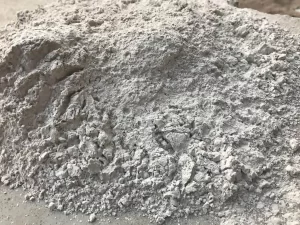
Modernization of Casting Powders
With the development of up to 3500 different grades of Steel being produced in modern times, it is a necessity to have multiple types of casting powders with varying shapes and compositions. You may ask, how are different types of casting powders made? The answer to that are the factors that alter the properties of castings powders.
Factors effecting Casting Powders
The characteristics of different types of casting powders define their usage in the Steel Industry, as each one has its advantages and disadvantages under varying conditions. Hence, it is important to know how each casting powder will effect the casting process and grade of steel desired. The factors which effects the characteristics and properties of casting powders are as follows,
Chemical Composition
The percentage of various chemicals used in the mixture of the Powder
Mineralogy
The mineralogical composition of the powder
Drying Method
The process of drying or roasting used
Grain Size
The grain size of the casting powder
Manufacturing
The manufacturing process of the powder
Which Casting Powder should you choose?
Based upon the factors mentioned above, a Mould powder can be categorized by a few key characteristics. It is important to know how each characteristic effects the behavior of the casting powder as it is a vital to know how the selected casting powder will effect your casting process.
- Melting Behavior
- Melting Trajectory
- Melting Speed
- Viscosity
So how would one go about making a decision on which type of Mould Powder to use for their casting process? Unisons Steel Solutions offers a simple solution to this with the help of our highly qualified consultants, we help you make this decision with ease. Unisons Steel Solutions offers Casting Powders of the best quality from reputable suppliers.
Chemical Composition
| Compound/ Element | Percentage % |
|---|---|
| Calcium Oxide ( CaO ) | 21.64 |
| Silicon Dioxide ( SiO2 ) | 32.84 |
| Aluminum Oxide ( Al2O3) | 3.92 |
| Flourine ( F ) | 5.25 |
| Ferric Oxide ( Fe2O3 ) | 1.09 |
| Magnesium Oxide ( MgO ) | 3.67 |
| R2O | 9.33 |
| Water ( H2O ) | 0.35 |
| Carbon ( C ) | 14.45 |
Physical Characteristics
| Characteristic | Value |
|---|---|
| Basicity | 0.66 |
| Bulk Density (g/cm3) | 0.72 |
| Melting Characteristics (°C) | 1066 |
| Viscosity (Pa.S 1300°C) | 0.325 |
| Sieve Analysis (0.15~2mm) | ≥90% |
Advantages of Mould Flux Powder
- Mould Powders are excellent at lubricating the surface of the mould, preventing adhesions from forming on the surface.
- Due to the high heat removal rate, mould powders are able to help solidify the metal quickly.
- Mould flux is able to perform well even at extreme temperatures.
- Mould powders increase the quality of the surface of metal.
- They assist in purifying impurities from the molten metal.
Why choose us for Casting Powder?
Meticulously formulated to ensure a smooth and efficient casting process, our Casting Powder is an investment in efficiency and cost savings. We ensure our customers a decrease in surface defects, cracks and inclusions while seeing an increase in yield and quality of steel. We understand that no two steelmaking facilities are alike, hence our experts provide customized solutions that best fit your needs and equipment.
Visit our Store or contact us below for an inquiry.

